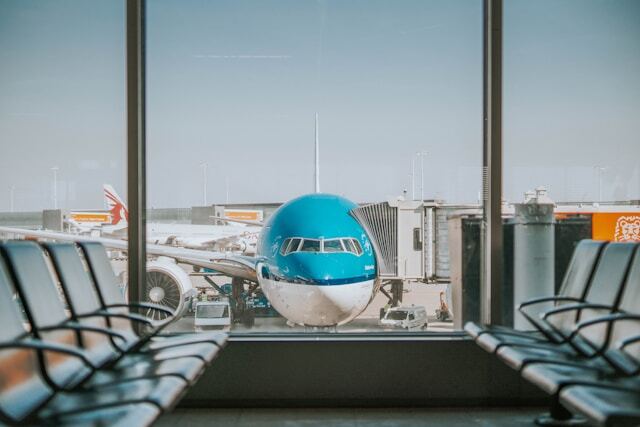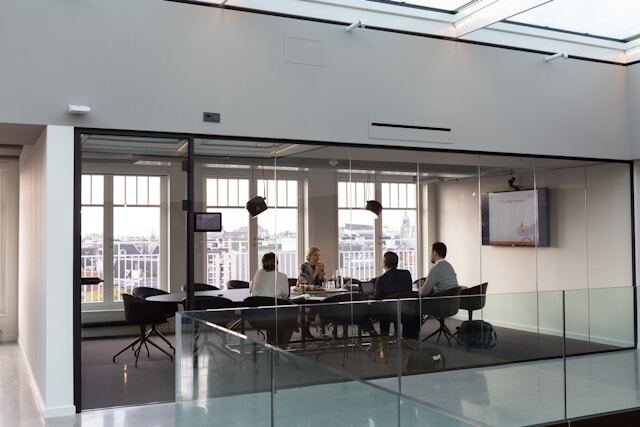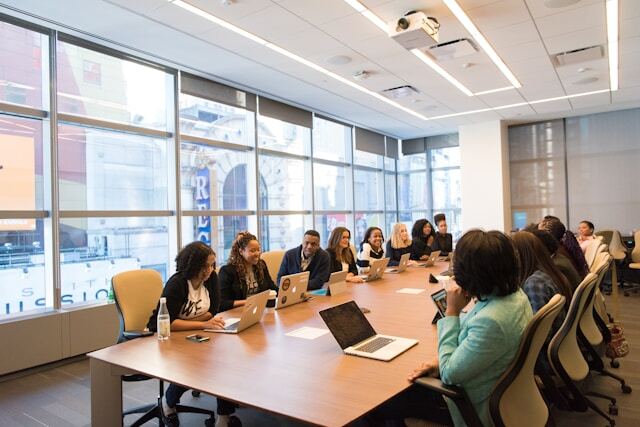Set your new hires up for success
Humanizing Global Mobility: Employee Experience and Wellbeing in Global Assignments

International assignments can be incredibly rewarding opportunities that give people a chance to develop professionally, while expanding their horizons in life and enjoying new experiences. They also enable companies to grow into new markets, share knowledge and expertise, and fill gaps in their global workforce.
But the success and return on investment of such assignments rests upon a whole host of factors, and as an intercultural coach who has spoken with hundreds of people as they transition to working in a new culture and context, I believe it’s never been more important than it is now for companies to focus on their employees’ experience and wellbeing.
In this article, we will explore why people want so much more from their work overseas than just the amount on their pay check or the next promotion. We will look at how some of the current shifts in international business are impacting globally mobile professionals. And we’ll discuss ways that employers can embed employee wellbeing into every part of the global mobility cycle so that their people can thrive in this constantly shifting world of global working. 
The Human Side of Global Mobility
A senior executive who had just moved her family to London in order to take on a challenging new role described her morning routine to me on one of our coaching calls recently. She wakes early before the kids each day, and makes herself go for a walk outdoors - knowing that it will likely be the only time alone she’ll have during another extremely busy day. She walks up a hill to a viewpoint where she can look out over the city and she reminds herself that by relocating to London, she has made some of their family hopes and aspirations come true. She enjoys a moment of gratitude, then takes a deep breath before walking back down the hill to face the day and try to live up to the goals her company have set for her assignment – namely to oversee the opening of more than 200 restaurants across the EMEA region in the next 3 years.
Ambitious and challenging targets like these are something that many global mobility professionals will be familiar with. Companies invest a lot of money in international assignments, so expecting a lot in return is understandable. But relocating employees across borders has never just been a matter of targets, or indeed of logistics, accommodation or work permits. As the story of the senior executive in London illustrates, relocation is a deeply human thing. The employees who are moving from location A to B, and then on to location C (or perhaps back to A), are real people with normal human needs: for belonging, for stability, for a sense of purpose, for community, for family, for fun and for so much more.
I often begin my coaching sessions by asking what the assignee is hoping to get out of the upcoming move. It’s striking how few people begin by talking about their Key Performance Measures or work outputs, or even about how this move will support their career development. More often than not, they start by talking about their children making friends and settling into school. They talk about making the most of the opportunity that living in this new location will give them to explore neighbouring countries. They talk about the opportunity to put some boundaries in place and prioritise exercise a bit more. In other words, people’s priorities are often as much about their wider experience and their sense of wellbeing as they are about their professional output or the financial benefits.
Don’t get me wrong, it’s not that they don’t care about the work priorities – most international assignees are highly motivated to succeed and want to deliver in that area too. It’s just that their reasons for giving up the familiarity of home, for stepping out on a new adventure with all the challenges and unknowns that that entails, are linked more to the experiential benefits than they are to financial or career ones. And part of that experience is about their wellbeing – physical, mental, social, spiritual – something that younger employees seem to be prioritizing more than any previous generation (see McKinsey’s 2025 Future of Wellness report).

No Time Like the Present
Many companies have recognised the importance of employee experience and wellbeing for a while now. They’ve understood that workers on global assignments experience some unique stressors – adjusting to a new culture, figuring out how unfamiliar systems and processes work, dealing with isolation and distance from loved ones, potential language gap, loss of support systems and of routine, etc – and they have put things in place to try to help.
But there are several reasons why I believe the current cultural moment makes global assignments uniquely challenging, and why employee wellbeing needs to be kept paramount. First, geopolitical instability and conflict mean that some companies are having to make strategic decisions about relocations at short notice. This obviously has a destabilising effect for employees who are all set to move their family to the other side of the world, and are then asked to wait or not move at all. Second, a rise in populist politics in many countries and the associated narratives about immigration have raised the level of concern among some international assignees about safety and belonging. Third, the rise of AI has begun to have an impact on almost every field of work, disrupting established patterns and creating considerable uncertainty about what people’s jobs may look like and which will still be needed. And finally, the post-pandemic increase in virtual and hybrid working means that employees who move to work in the country of delivery are sometimes still faced with an empty office and more time on screen – not exactly what they signed up for.
A British executive I coached recently opened up about some of these challenges, sharing how isolated he felt having taken an exciting opportunity to help deliver a huge project in the Gulf. Not only had he left his family back home due to the considerable unrest in the region, be he had to get used to an extended stay in a hotel room because his apartment hadn’t been organised due to the last minute nature of the move. He found himself joining virtual meetings with people he thought he’d be seeing face-to-face, looking to AI for guidance on cultural adjustment, and the business made strategic changes due to the conflict in the region which meant he was asked to work on a completely different part of the project than he had originally anticipated.
The challenge for companies, then, is to pay attention to these ever-shifting influences affecting their employees, and to adapt the support they provide accordingly.

Getting it right
If your company wants to help your people to thrive and you want to maximise the chances of assignment success, there are a number of things you can be doing:
• Communicate regularly and clearly about any uncertainty or changes. Employees understand that there may be some circumstances beyond your control, but good communication can help to reduce the uncertainty and the worry they may feel.
• Create a culture where the assignee feels listened to and supported - touch base with them regularly so that you understand what challenges they are facing.
• Set realistic expectations. Make sure that you are not ‘over-selling’ the assignment or minimising the scale of the challenges it may involve, and take into consideration the time needed to adjust to a new context and culture when setting targets and goals.
• Try to provide as much clarity about the actual role and the working environment as possible, including how much they will see their new colleagues face to face and what a typical work week will look like.
• Try to understand what matters to each assignee, and find ways to tailor your package of support so that they their individual requirements are being met. Look at what employees need holistically, and consider what flexibility you can provide to enable them to meet these needs. Find ways to communicate that you understand and support their wider personal motivations for taking the assignment.
• Work with mobility professionals to provide information and training about the cultural transition ahead of the move, as well as ongoing coaching post arrival if the assignees would like it.
• Be ready to review and adjust things – the world is constantly changing. Review your regular policies and procedures for global assignments to check they are up to date and take into consideration the current context.
It’s never easy to find the perfect balance between employee wellbeing and meeting the needs of the business. But getting it right for global assignees has never been more important, and companies should feel confident that any investment they make in helping people thrive on their assignment will be worthwhile for both company and employee.
With over 30 years of experience, Country Navigator has helped more than a million people around the world succeed in global mobility, cross-border collaboration, and cultural intelligence.
Ready to explore how we can support your business? Speak with us today.
- AI,
- Blog,
- Complex Organizations,
- Cultural Intelligence,
- Cultural Intelligence (featured),
- Diversity & Inclusion,
- Global Leadership & Transformation,
- Global Leadership Development,
- Global Mobility,
- Global Team Collaboration,
- Hybrid Working,
- Influence,
- Performance and Feedback,
- Product News,
- Talent Acquisition & Onboarding,
- Team & Collaboration,

Dan Green
Dan has over 10 years of experience in consulting, offering training and coaching in intercultural communication. He began his career after eight years in the Middle East with the British Council and completing a Master’s in Intercultural Communication. He is also the founder and director of a Bristol-based charity focused on social cohesion. Raised in India, Dan has lived and worked in Lebanon and Jordan, and is now based in Bristol. He supports multinational employees in adapting quickly and thriving professionally and personally in new cultural environments. More posts by Dan GreenRelated articles
Ready to get started?
Kickstart your cultural intelligence journey and try our
no-obligation free trial for 14 days
Join companies already using Country Navigator




COMMENTS